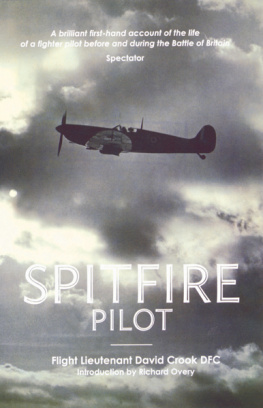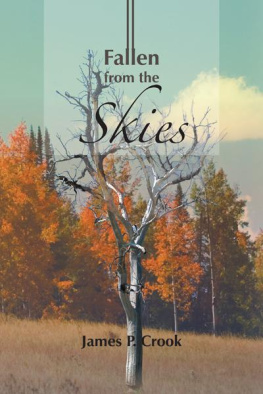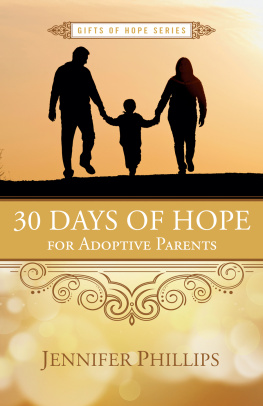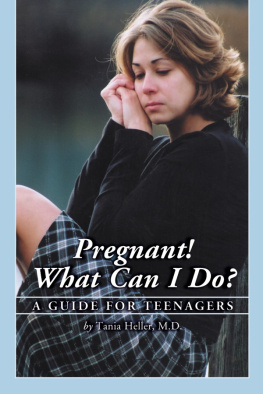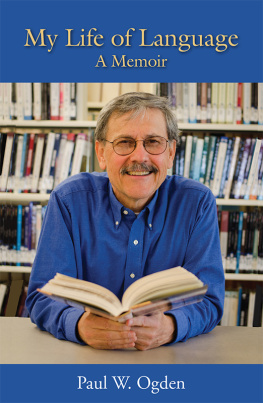The Face in the Mirror
The Face in the Mirror
Teenagers and Adoption
Marrion Crook

THE FACE IN THE MIRROR
Copyright 2000 by Marion Crook
All rights reserved. No part of this book may be reproduced in any part by any means without the written permission of the publisher, except by a reviewer, who may use brief excerpts in a review.
ARSENAL PULP PRESS
#102-211 East Georgia St.
Vancouver, BC
Canada V6A 1Z6
arsenalpulp.com


The publisher gratefully acknowledges the support of the Canada Council of the Arts and the B.C. Arts Council for its publishing program, and the Department of Canadian Heritage through the Book Publishing Industry Development Program for its publishing activities.
Edited for the press by Linda Field
Typeset by Robert Ballantyne
Cover photograph provided by Tony Stone Images
Printed and bound in Canada
CANADIAN CATALOGUING IN PUBLICATION DATA
Crook, Marion, 1941
The face in the mirror
ISBN 155152-079-6
ISBN 978-1-55152-079-7
EISBN 978-1-55152-323-1
1. Adoption. 2. Adoptees-Identification. I. Title.
HV875.C76 2000 362.73'4 C00-910249-3
Contents
Acknowledgements
MY THANKS GO FIRST TO THE OVER FIFTY young people who gave me their time and their information. I agreed not to publish their names and so cannot thank them individually. Thanks also to the Adoptive Families Association of B.C. who, with the Chris Spencer Foundation, supported the more recent research project.
Following is a list of people who offered suggestions and information when I first began researching. Some are quoted in the book and some are not. All added greatly to my knowledge, and I appreciate their interest and their caring attitude toward the teenagers I was trying to understand:
Mary Beauchamp, Program Officer, Department of Social Services, Government of the North West Territories; Child Welfare League of America, New York; Susan Drysdale, Co-ordinator, Children in Care, Department of Social Services, Halifax, N.S.; Pam Hendy, Canadian Adoptee Reform Association, Williams Lake, B.C.; Anne Lea, Adoption Resource Centre, Edmonton; Dolores Lindsay, mother of five, Winnipeg; Clair Marcus, author, adoptee reform activist; Joyce Masselink, Social Worker, Ministry of Human Resources, Victoria, B.C.; Linda MacDonald, Canadian Adoptee Reform Association; Nancy Nelson, Community Worker, Victoria; Patricia O'Brian, Ministry of Community and Social Services, Toronto; Irene Patterson, Program Consultant for Adoption Exchanges, Fredericton, N.B.; Rolland Perrin, psychiatric social worker, Department of Health, Williams Lake, B.C.; Wanda Pillon, Parent Finders, Victoria, B.C.; David Ross, Friendship Centre, Williams Lake, B.C.; Audrey Scrammell, Canadian Adoption Reunion Registry, Victoria, B.C.; Mark Spence-Vinger, Department of Human Resources, Williams Lake, B.C.; Betty Stinston, Social Worker, Department of Health and Human Resources, Whitehorse, Yukon; birth mothers, Anna K., Kelli A., Tammi K., Barb H., Lou S., and Chris P., who gave me hours of their time. I am also grateful to the many parents and adopted adults who phoned and visited with their stories in the hope that they would help others.
Special thanks, too, to the ten teenagers who agreed to share their time to help with further research, and others, in particular Diedre and Danielle, who kept calling to encourage me, and Karen Madeiros, Helen Mark, Margaret Robinson, Anne Melcombe, Jennifer Hillman, Margaret Kwong, and Harriet Sancott, all of the Adoptive Families Association of B.C.; Rodney Louie, Stliatliimx, Band Chief; Gail Barth, Jennifer Murn, and Fern Crook, adoptive mothers; Danielle Finnegan, an adopted adult who read and commented on my manuscript; Lizabeth Hall, Scott Clark, and Mark Handley, United Native Nations; Betty Stewart, Parent Finders; Joss Halverson, Librarian; Sharon Jinkerson, aboriginal adoption counsellor; Vivienne Green and Christine Patsey of the Gitanmaax Reserve; Dean Fortin, adopted adult who read the manuscript; and the many people who have taken the time to tell me their adoption stories. You are all, in some way, a part of this book.
To all my children with gratitude
for all the lessons they have taught me.
Preface
IMAGINE HUMAN LIFE as a gigantic tapestry. We weave our own lives into that fabricour ideas, feelings, and plans, slipping them around and through the plans and ideas of others and into our family patterns that expand and become more complex as we add and blend in threads from other sources.
This book was written for adopted teenagers who, like all teenagers, are entwined in their family patterns and in the larger fabric of the social world. It is written as well for the parents, teachers, counsellors, social workers, nurses, doctors, and friends who surround them. Adopted teens have something different from their friends in other family circlesa loose thread that may need attention before they feel complete. Some tape this loose connection to themselves and try to ignore it. Others trace it back to its origin and leave it there. Still others carry a long disconnected burden that entangles all the relationships of their lives.
The patterns are often not simple ones. It was this emerging view of the complexity of being adopted that set me on the path of research and discovery with teens.
I read books to my children about adoption, but by the time they reached twelve, I couldn't find any in my city library or book store that spoke to teenagers. My sons, both adopted as infants, never asked me about their backgrounds, and I wondered what they were thinking. They answered my questions about adoption with a brief yes or no, and a kind of bland indifference. Didn't they care? Did any teenager care? Did anyone know what teenagers thought about adoption? My curiosity grew, as did my concern that I might need to know more, that a lack of books and information might be hiding something important. I decided to find other adopted teenagers and ask them: What do you think about being adopted? What do you know? How do you feel?
I borrowed every book on the subject in my local library. Using a friend's computer, I did a search on all books in print on teenagers and adoption, and using another friend's university card I raided the college library. I read every book I could get my hands on that had anything to do with the subject.
In the summer of 1985 I packed my Dodge van, bribed my twelve-year-old son David to come with me, and headed south from Williams Lake. My friend Nancy, who was seven months pregnant, her eighteen-month-old son Max, and Felicity, the twelve-year-old daughter of a Winnipeg friend joined us in Vancouver. From there the caravan went east, gypsy-like, along the Trans-Canada Highway with Max's play-pen strapped to the roof-rack. We stayed with friends and relatives along the way. I interviewed adopted teenagers who were daughters, cousins, or friends of my friends. In this casual and random fashion we wandered over the prairies and arrived in Winnipeg where Delores, a busy mother of five with no time to look for adopted teenagers to interview, had put an ad in two city newspapers asking interested teens to call her number. And call they did. Her phone rang for days. I crouched in the pantry, the only quiet room, writing down teens' names, ages, addresses, and detailed directions to their houses. For four days I drove around the city listening, taping, asking them questions.
Next page

